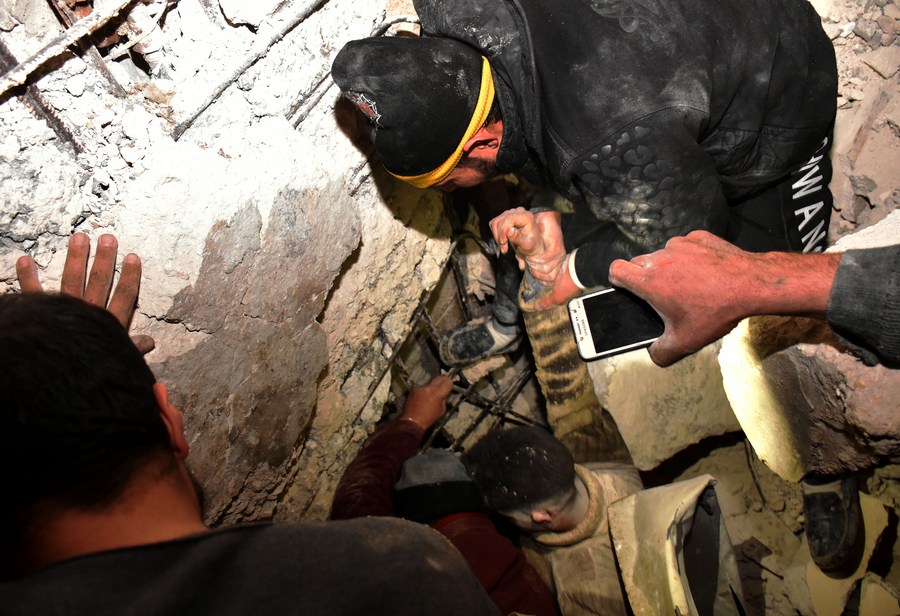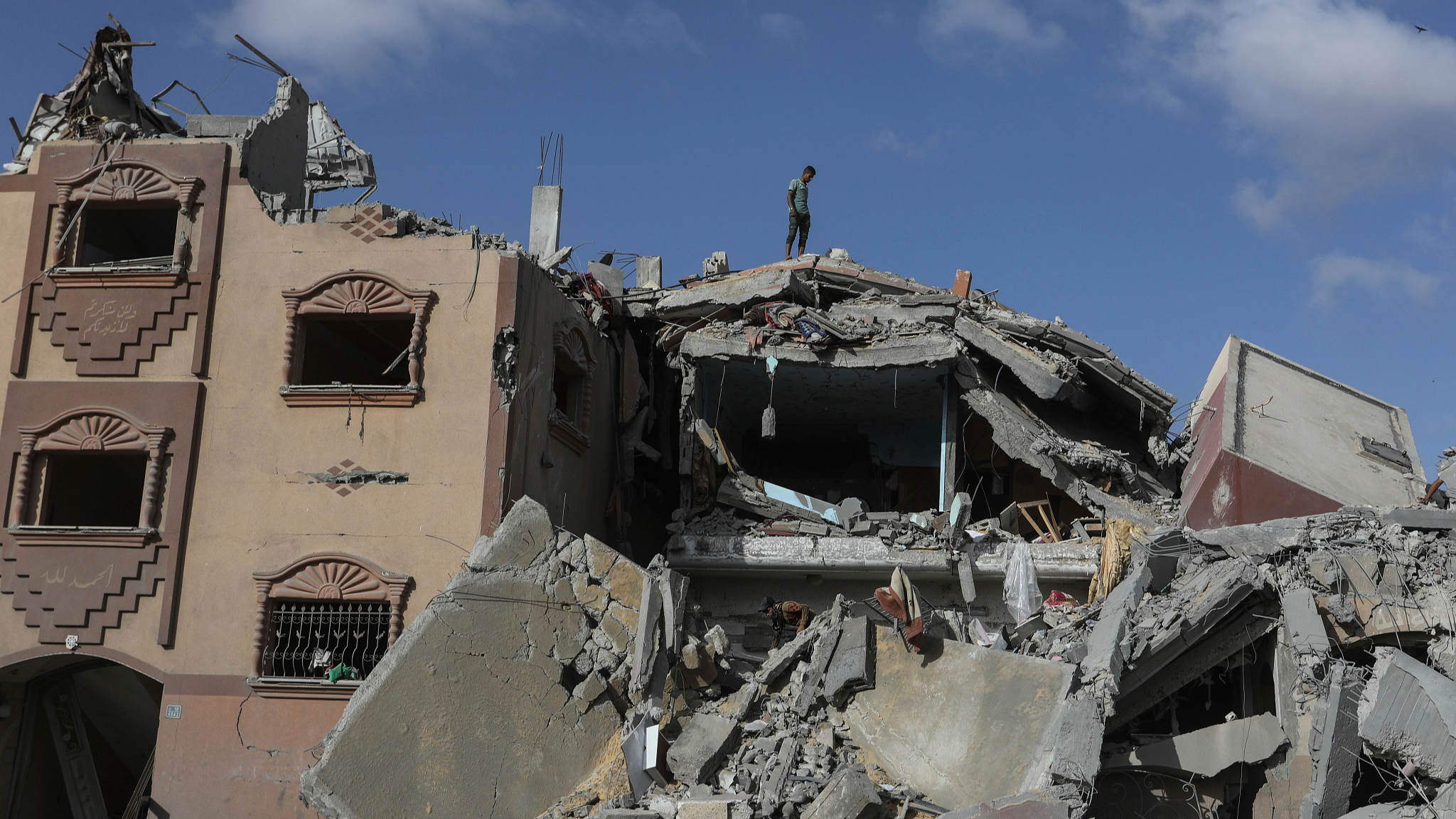Update on Türkiye’s earthquakes:
— at least 1,762 killed, 12,068 wounded;
— at least 5,606 buildings destroyed;
— 6,445 rescued so far from the rubble;
— rescue mission continues to the night amid cold, rainy weather.
ANKARA, Feb. 6 (Xinhua) — The death toll is rising after Türkiye’s southern provinces were jolted by strong earthquakes on Monday with at least 1,762 people lost their lives, 12,068 others injured, according to Disaster and Emergency Management Authority (AFAD).
A total of 5,606 buildings were damaged, and a least 6,445 people were rescued from the wreckages, the agency said, adding that the search for people trapped in toppled buildings continues.
A magnitude-7.7 earthquake struck Türkiye’s southern province of Kahramanmaras at 4:17 a.m. local time (0117 GMT). It was followed by a magnitude-6.4 quake a few minutes later in the country’s southern province of Gaziantep and a magnitude-7.6 earthquake at 1:24 p.m. local time (1024 GMT) in the Kahramanmaras Province.
Residents ran out of their homes in their pajamas and t-shirts after the ground shook early Monday and have been waiting on the streets covered with ice and snow through the day.
Türkiye’s southern province of Hatay bordering Syria suffered the most loss of life in the earthquake with at least 520 casualties. Two hospital buildings in the Hatay province collapsed, Turkish Health Minister Fahrettin Koca said.
Rescue teams from the Turkish Red Crescent and AFAD were dispatched to the earthquake zone, while the Turkish security forces, search and rescue volunteers, and the rescue teams of several local administrations also participated in the efforts.
The Turkish Defense Ministry has set up an air corridor to facilitate search and rescue teams to reach the quake-affected zone.
Defence Minister Hulusi Akar said 3,500 soldiers participate in rescue operations. He noted that 17 aircraft are flying to the region from Istanbul, Izmir, and Ankara, carrying aid supplies.
AFAD President Yunus Sezer said nearly 15,000 rescue personnel and about 5,000 vehicles and construction equipment had been deployed in the region.
The search and rescue efforts are being hampered by a winter blizzard as the temperatures recorded below 10 degrees celsius in most of the affected provinces. The weather service was forecasted rain and sleet across southeastern Türkiye until Thursday.
Türkiye issued a level-4 alarm after the earthquake, which includes a call for international aid. Turkish President Recep Tayyip Erdogan said Ankara received offers for help from some 45 countries in the aftermath of the quake.
NATO Secretary General Jens Stoltenberg said members of the alliance were mobilizing support for Türkiye. More than 20 countries have sent rescue teams and assistance to help rescue efforts of Türkiye.
An explosion occurred on a gas pipeline in Türkiye’s southern province of Hatay and natural gas flow to southern Gaziantep, Hatay and Kahramanmaras provinces was suspended as a precaution.
At the port of Iskenderun district in southern Hatay province, a fire broke out following the earthquake and emergency services intervened in the blaze.
In southern Gaziantep, walls and watch towers of an ancient castle, constructed as an observation point by the Hittite Empire, have been leveled, while other parts are largely destroyed by the earthquake.
Türkiye declared national mourning for a week, with the flags to be flown half-mast. The Turkish education ministry has announced that schools across the country will be closed for seven days until Feb. 13.
“Due to the earthquakes that took place in our country on Feb. 6, a national mourning period was declared for seven days,” said President Recep Tayyip Erdogan. “Turkish flag will be hoisted at half-mast until sunset on Sunday all around Türkiye, at all foreign representations.”
The country has often faced earthquakes due to its location at the crossroads of three different tectonic plates in Anatolia.
Monday’s earthquake is believed to be the strongest in Türkiye since the magnitude 7.9 eastern Erzincan province quake of 1939, which killed 33,000 people.
In 1999, a 7.4-magnitude quake hit northwestern Izmit province, around 90 km east of Istanbul, killing at least 17,500 people, including 1,000 living in Istanbul.
The Turkish authorities have introduced tighter building regulations, revised urban planning, and improved key public infrastructure amid a public awareness campaign following the 1999 quake.
Source(s): Xinhua

 News7 days ago
News7 days ago
 Sports7 days ago
Sports7 days ago
 News7 days ago
News7 days ago
 World6 days ago
World6 days ago
 Sports7 days ago
Sports7 days ago
 News6 days ago
News6 days ago
 News6 days ago
News6 days ago
 Tech3 days ago
Tech3 days ago


















